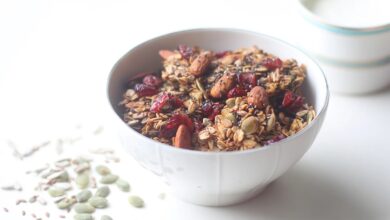Importance of Plant-based Proteins Bars

Plant-based proteins are taking the world by storm. Many options are available, and everyone is trying to jump on the bandwagon. With so many plant-based options, how can you decide which one to try?
Protein is the primary building block for muscles and tissues in our bodies. It is the ultimate nutritional supplement to gain lean muscle mass and lose fat. Protein contains amino acids, which are essential in building tissue and repair.
Protein is also an essential component of different body systems such as metabolism, the immune system, the nervous system, the intestinal lining and digestive tract, the skin, the reproductive system, etc. There are many benefits of plant-based protein bars, such as:
It can help you to lose weight
You will automatically eat less food and burn more calories by cutting out meat and dairy products from your diet. This is because meat contains a lot of protein and fat, which make up for the lack of carbohydrates in a low-carb diet. Plant proteins contain almost no carbs, so if you’re on a low-carb diet, eating more plant-based proteins will help you burn fat faster!
It is cheaper than animal products
The higher cost of organic ingredients makes it more expensive to produce plant-based foods compared to animal products, but we should still pay more money for those goods. As mentioned before, most vegetables have already been grown without pesticides and other harmful chemicals, so they don’t need any extra protection from nature, which means they can be cheaper than meat or dairy products without compromising on quality!
It is more environmentally friendly
Plant-based protein sources are carbon neutral or produce fewer emissions than animal products. For example, a study published in the journal Environmental Science and Technology found that switching from beef to soy could reduce greenhouse gas emissions by as much as 13%.
It is healthier for you
The dietary guidelines from the U.S. Department of Agriculture recommend that we get 10% of our daily calories from protein — which means roughly 30 grams for adults — but most Americans only get about half that amount. As a result, many people are eating too much protein, which can be associated with weight gain, heart disease, and other health problems such as cancer and diabetes.
Plant-based proteins have a lower carbon footprint than animal proteins. Such measures mean they require less land, water, and energy to produce them. Plant-based proteins also have a lower water requirement than animal proteins, which means they take up less space in our landfills.
It is better for your wallet
Plant-based proteins cost less than animal-based ones because they require fewer resources to produce (such as land and water), and they don’t require any feedstock (such as corn).
For example, according to the Good Food Institute, it costs almost $18 more per pound to raise beef than it does to grow soybeans; and it costs almost $6 more per pound to raise chicken than it does to grow wheatgrass or alfalfa grasses!
In Conclusion
Plant-based foods are beneficial in so many ways: they’re rich in fiber, vitamins, and minerals, but most of all, they are low in fat and cholesterol. If you are looking to boost your intake of plant-based foods, follow our advice for a healthier life.




